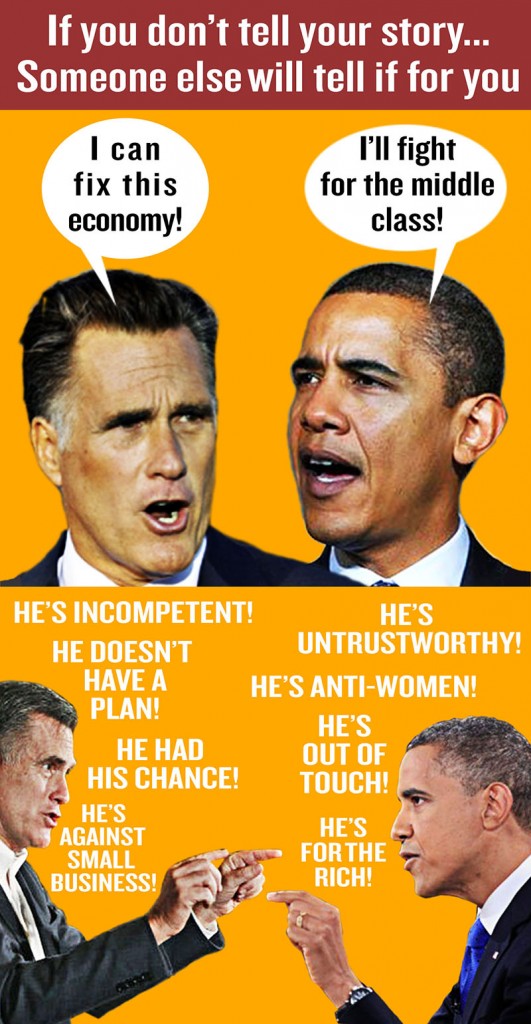In most elections the partisans already know who they’re voting for—their votes are based on policies not necessarily politicians. But in an election as close as this one to persuade the small slice of “undecideds,” both Obama and Romney (and their army of supporters) have used every means to shape their story including advertising, stump speeches, visual presentation and robo calls. And just as much effort has been put into destroying the narrative of the other guy.
Although a thousand tangents have been taken and small bore arguments made by the candidates, Obama’s storyline could be summed up as, I inherited a mess that I’ve done a lot to fix and if you elect me again I’ll continue fighting for the Middle Class. And Romney’s might be summarized as: I’m a businessman who knows how to get this economy going.
When we talked to Richard Gerrig, an author and professor of psycholinguistics who’s researched the cognitive effects of narrative, he told us that anyone under the sway of a story can be transported: [Expand ]
“You are so immersed in the narrative and involved with the characters that you are not just identifying with them, you become part of their world and have a stake in the story.”
In other words, in the grips of a story, we experience the narrative in the same way we would if we were actual participants in that story. An effectively told story can so weaken our rational powers of cognition and reason that the story can seem to become proof of its own content.
And in this election both Romney and Obama are vying to be the one who tells the story that “transports” more voters than the other.
Storytelling, of course, is an art not just practiced by politicians. Many of the superachievers we interviewed for our upcoming book recognized the power of narrative. Whether it was to develop a brand or sell a product or even market a rock band, the men and women we talked to told us about how they had put great effort and thought into shaping narratives to communicate with their target audiences.
One of our favorite lines was uttered to us by Michael Sitrick, an L.A. crisis manager, who rehabilitates the tarnished reputations of misbehaving celebrities, CEO’s and elite athletes. In its brutal simplicity, his line could be the motto of any political candidate, party or operative hoping to win an election:
“If you don’t tell your own story, someone else will tell it for you.”
On Tuesday (or who knows when), we’ll see which candidate was the better storyteller. [/Expand]
For more on “The Art of Doing,” like us here, follow us there.

